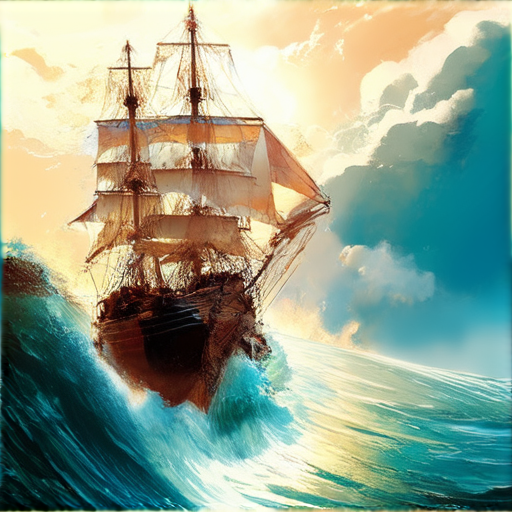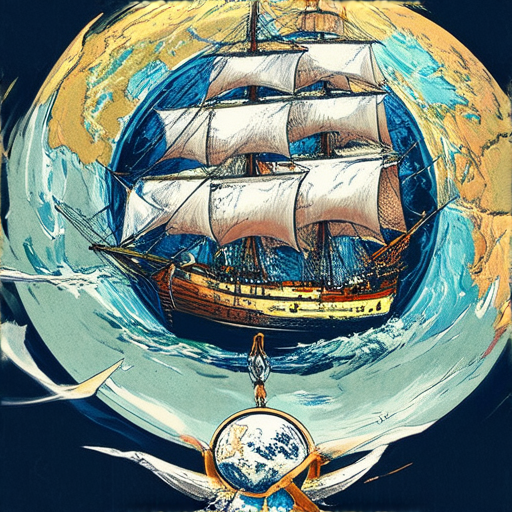As we stand at the threshold of a new era in human history, it’s essential to reflect on the pivotal moments that have shaped our understanding of the world and its vast expanse. Global exploration, a term that encompasses the quest for knowledge, discovery, and expansion, has been a driving force behind some of humanity’s most remarkable achievements.

What is Global Exploration?
Global exploration refers to the extensive voyages and expeditions undertaken by various nations and empires throughout history, driven by the desire for new trade routes, resources, and territorial expansion.
- The era of global exploration began in the late 15th century, marked by the Portuguese discovery of the sea route to Asia and the subsequent colonization of the Americas.
- European powers such as Spain, Portugal, Britain, France, and the Netherlands played a significant role in shaping the course of global exploration, establishing trade networks, and claiming territories around the world.
Key Factors Driving Global Exploration:
- Desire for New Trade Routes and Resources:
- Pursuit of Territorial Expansion and Colonization:
- Cultural Exchange and Imperialism:
Impact of Global Exploration:
Global exploration had a profound impact on the world, leading to the transfer of goods, ideas, and cultures between civilizations.
- Establishment of New Trade Networks:
- Colonization and Territorial Expansion:
- Cultural Exchange and Imperialism:
Modern-Day Implications:
Understanding global exploration is essential for appreciating the complexities of modern-day globalization, cultural diversity, and economic interconnectedness.
- Appreciation for Cultural Diversity:
- Understanding of Economic Interconnectedness:
- Recognition of Historical Context:
We invite you to explore our website, Bending Borders, for more information on global exploration and its ongoing impact on our world today.
The Effects of Global Exploration
Global exploration had far-reaching consequences that shaped the course of human history.
- Cultural Exchange: As people from different regions interacted, they shared ideas, customs, and technologies, leading to a rich cultural diversity.
- Economic Growth: The establishment of trade routes facilitated the exchange of goods, services, and resources, contributing to economic growth and development.
- Scientific Discoveries: Explorers made groundbreaking discoveries in various fields, including geography, astronomy, and biology, expanding our understanding of the world.
- Colonization and Imperialism: European powers established colonies, often displacing indigenous populations and imposing their own systems of governance, leading to conflicts and power struggles.
- Disease Transmission: The movement of people and goods facilitated the spread of diseases, decimating native populations who lacked immunity.
- Environmental Impact: Human activities during the age of exploration led to deforestation, habitat destruction, and pollution, contributing to environmental degradation.
Positive Outcomes:
- Global Connectivity: The age of exploration laid the groundwork for modern globalization, connecting people and economies worldwide.
- Cultural Enrichment: The exchange of ideas and customs enriched the cultural heritage of participating nations.
- Technological Advancements: Innovations in navigation, cartography, and communication paved the way for future technological progress.
Negative Consequences:
- Displacement and Exploitation: Colonizers exploited native populations, leading to displacement, enslavement, and cultural erasure.
- Environmental Degradation: Human activities during the age of exploration contributed to environmental degradation, which persists to this day.
- Social Inequality: The legacy of colonialism and imperialism continues to perpetuate social inequality, with marginalized communities facing systemic barriers to access and opportunity.
Conclusion:
The effects of global exploration were multifaceted and far-reaching, shaping the course of human history in complex and often contradictory ways. While it facilitated cultural exchange, economic growth, and scientific discovery, it also led to colonization, disease transmission, and environmental degradation. Understanding these outcomes is essential for navigating the complexities of globalization and promoting a more equitable and sustainable future.

Who Began Global Exploration?
As we explore the vast expanse of human history, it’s fascinating to learn about the pioneers who paved the way for modern-day adventurers.
-
The Age of Discovery
The Age of Discovery was a pivotal era marked by European explorers venturing into the unknown, driven by curiosity and a thirst for knowledge.
-
Henry the Navigator
-
Other Notable Explorers
Prince Henry of Portugal, also known as Henry the Navigator, is often credited with initiating the first great enterprise of the Age of Discovery – the search for a sea route east by south to Cathay.
While Henry the Navigator is often hailed as the pioneer of global exploration, other notable explorers made significant contributions to the field:
- Vasco da Gama, who discovered the sea route to India in 1498
- Cristóvão Colombo, who led the first European expedition to the Americas in 1492
- Ferdinand Magellan, who led the first expedition to circumnavigate the globe in 1519-1522
These brave explorers risked everything to chart new territories, establish trade routes, and expand human understanding of the world.
Cultural Significance
The Age of Discovery had a profound impact on global cultures, shaping the course of history and leaving a lasting legacy:
- Cross-cultural exchange and trade flourished, leading to the transfer of ideas, technologies, and innovations between civilizations
- New lands and resources were discovered, fueling economic growth and expansion
- The Age of Discovery laid the groundwork for modern-day globalization, connecting people and nations across the world
Conclusion
In conclusion, the Age of Discovery was a transformative era that saw the dawn of global exploration, marking the beginning of a new chapter in human history.
From Henry the Navigator to Vasco da Gama, Cristóvão Colombo, and Ferdinand Magellan, these pioneering explorers paved the way for modern-day adventurers, inspiring us to continue exploring, discovering, and pushing the boundaries of what’s possible.

What is the Meaning of World Exploration?
World exploration refers to the act of traveling to and discovering new places, cultures, and experiences. It involves venturing beyond one’s comfort zone and immersing oneself in unfamiliar environments, often leading to personal growth, newfound understanding, and a broader perspective.
- Adventure and Discovery: World exploration is driven by a desire for adventure and discovery, whether it’s exploring ancient ruins, trekking through uncharted territories, or experiencing local customs and traditions.
- Cultural Exchange: By interacting with people from diverse backgrounds, individuals can gain valuable insights into different ways of life, fostering empathy, tolerance, and cross-cultural understanding.
- Personal Growth: Exploring the world can be a transformative experience, helping individuals develop resilience, adaptability, and self-awareness as they navigate unfamiliar situations and challenges.
The Importance of World Exploration
World exploration plays a vital role in shaping our understanding of the world and ourselves. It allows us to:
- Break Down Barriers: Challenge stereotypes and misconceptions, promoting greater understanding and cooperation between nations and communities.
- Foster Global Citizenship: Develop a sense of responsibility towards the planet and its inhabitants, encouraging sustainable practices and environmental stewardship.
- Promote Cross-Cultural Understanding: Encourage dialogue, exchange ideas, and share knowledge, ultimately enriching our collective human experience.
Bridging Cultural Divides
At Bending Borders, we believe that world exploration has the power to unite people across cultures and borders. Our platform provides a space for travelers, culture enthusiasts, and storytellers to share their experiences, insights, and perspectives, inspiring others to embark on their own journeys of discovery.
We invite you to join us on this journey, exploring the world’s diverse landscapes, cultures, and experiences. Together, let’s bend borders and forge connections that transcend geographical boundaries.
Purposes of Exploration
Exploration has been a driving force behind human discovery and progress, shaping our understanding of the world and its many wonders. As we delve into the realm of exploration, it becomes evident that there are several key motivations that have fueled this pursuit throughout history. In this article, we’ll examine the three primary purposes of exploration, shedding light on the complex dynamics that have driven humanity’s quest for knowledge and expansion.
Main Purposes of Exploration
There are three fundamental reasons why humans have embarked on exploratory endeavors, each playing a significant role in shaping our collective understanding of the world.
- God: Throughout history, many explorers have been motivated by a desire to spread Christianity and establish colonies in the name of their faith. The Spanish conquistadors, for instance, saw themselves as instruments of divine providence, tasked with converting indigenous populations to Catholicism.
- Gold: The allure of wealth and riches has long been a powerful driver of exploration. From the ancient Greeks to modern-day prospectors, the promise of untold riches has inspired countless individuals to venture into the unknown, seeking to strike it lucky and return home with a fortune.
- Glory: A third motivation for exploration lies in the pursuit of fame and recognition. Many explorers have sought to etch their names into the annals of history, leaving a lasting legacy that would be remembered for generations to come. Think of famous explorers like Ferdinand Magellan, who led the first expedition to circumnavigate the globe, or Amelia Earhart, who attempted to fly around the world.
Additional Motivations
While the three primary purposes of exploration – God, Gold, and Glory – have been instrumental in shaping human history, there are other factors that have contributed to the drive for exploration. These include:
- Curiousity: Humans have always been driven by a desire to learn and understand the world around them. Explorers have sought to uncover new knowledge, push boundaries, and challenge conventional wisdom.
- Economic Growth: Exploration has often been tied to economic growth, as new trade routes, resources, and markets have been discovered. This has enabled societies to expand their economies, increase their standard of living, and become more prosperous.
- National Pride: Exploration has frequently been linked to national pride, as countries have sought to assert their dominance, expand their territories, and demonstrate their military prowess.
Conclusion
In conclusion, the purposes of exploration are multifaceted and complex, driven by a combination of spiritual, material, and personal motivations. By examining these underlying drivers, we can gain a deeper understanding of the historical forces that have shaped our world and continue to inspire us today. Whether driven by a desire for God, Gold, or Glory, exploration remains a vital aspect of human endeavor, pushing us to explore, discover, and innovate in ways that benefit society as a whole.
What is Exploitation in Simple Words?
Exploitation refers to the unfair treatment or use of someone or something for personal gain or advantage.
- It involves taking advantage of someone’s vulnerability, powerlessness, or lack of knowledge for one’s own benefit.
- Exploitation can occur in various forms, including economic, social, emotional, and physical.
Examples of Exploitation:
- Economic exploitation: Taking advantage of someone’s financial situation by charging exorbitant interest rates or fees.
- Social exploitation: Using someone’s social status or influence for personal gain.
- Emotional exploitation: Manipulating someone’s emotions for personal benefit, such as gaslighting or emotional blackmail.
- Physical exploitation: Using someone’s physical labor or body for personal gain, such as forced labor or human trafficking.
Consequences of Exploitation:
Exploitation can have severe consequences, including:
- Emotional trauma and distress
- Financial loss and debt
- Loss of autonomy and freedom
- Damage to relationships and reputation
Preventing Exploitation:
To prevent exploitation, it’s essential to be aware of the signs and take proactive steps:
- Be cautious of situations that seem too good to be true or require excessive commitment.
- Research and understand the terms and conditions of any agreement or contract.
- Set clear boundaries and communicate openly with others.
- Seek support from trusted friends, family, or professionals if needed.
Conclusion:
Exploitation is a serious issue that affects individuals and communities worldwide. By understanding its definition, examples, and consequences, we can take steps to prevent it and promote fair treatment and respect for all.

0 Comments